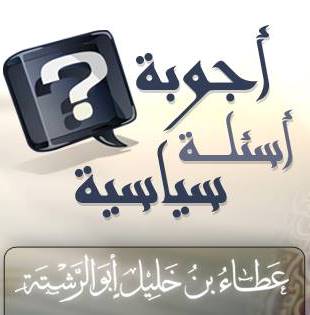
Question:
Assalamu Alaikum wa Rahmatullahi wa Barakatahu
Yesterday as the people were dispersing after Friday prayer, and as you know how the people gather around the doors of the mosque, someone called out: “Send salutations upon the Prophet” to which another person responded: “Remain silent, this is an innovation (bid’ah).”
The question is: Is this an innovation or not? Wa Jazakum Allahu Khayran
From: Abdullah Amer
Answer:
Wa Alaikum Assalaam wa Rahmatullahi wa Barakatahu
They man’s call upon the people to send salutations upon the Prophet صلى الله عليه وسلم at the door of the Masjid is not an innovation, because an innovation is a violation of a Shar’i matter, the means of which have been determined by the Shari’ah. The innovation, linguistically as noted in Lisaan al-Arab is,
“المبتدع الّذي يأتي أمراً على شبهٍ لم يكن…، وأبدعت الشّيء: اخترعته لا على مثالٍ”,
“The innovator comes with a matter in a form until then inexistent…, having ‘invented’ a matter: Making it up with no example for it.”
Its conceptual meaning is the same. If for example the Prophet صلى الله عليه وسلم did something in a particular method and a Muslim deviates from this method, then this is an innovation. An innovation is thus a deviation from the method prescribed by the Shari’ah to carry out a Shar’i matter. And this is the deduced meaning of the Hadith:
«وَمَنْ عَمِلَ عَمَلًا لَيْسَ عَلَيْهِ أَمْرُنَا فَهُوَ رَدٌّ»
“Whosoever introduces into this affair of ours (i.e. into Islam) something that does not belong to it, it is to be rejected.” [Bukhari and Muslim]
For example, if one were to perform three Sujuud in his prayers as opposed to two, since he has innovated a matter and deviated from the method of the Prophet صلى الله عليه وسلم. If one were to throw eight stones instead of seven stones in Mina then he would have committed innovation because it has opposed what the action of the Prophet صلى الله عليه وسلم. And if, for example, one were to add or remove words from the Adhan, then he or she would also have fallen into innovation as the Prophet صلى الله عليه وسلم approved of the specific wording of the Adhan.
However, the ruling on deviating from a matter of the Shari’ah in which a distinct method was not ordained falls into one of the legal ordinances, meaning: It is either Haram, Makruh, etc. if it is a matter of the regulatory ordinance (Hukm Wad’i) depending on the applicable indication to the matter, then it comes under the categories of Baatil, Fasiq, etc.
For example, it was reported by Muslim from Aisha (ra) in description of the Prophet’s prayer صلى الله عليه وسلم that she said:
«… وَكَانَ إِذَا رَفَعَ رَأْسَهُ مِنَ الرُّكُوعِ لَمْ يَسْجُدْ، حَتَّى يَسْتَوِيَ قَائِمًا، وَكَانَ إِذَا رَفَعَ رَأْسَهُ مِنَ السَّجْدَةِ، لَمْ يَسْجُدْ حَتَّى يَسْتَوِيَ جَالِسًا… »
“He صلى الله عليه وسلم upon raising is head from Ruku’ would not make Sujud until he was standing upright and when he raised his head from Sujud he would not make Sujud until he was sitting upright.”
Accordingly, in this narration the Prophet صلى الله عليه وسلم shows us that the Muslim should upon raising his head, not make Sujud until he is standing upright, and if he rose from his Sujud, he should not return to a state of Sujud until he is sitting upright. This is the method ordained by the Prophet صلى الله عليه وسلم and if anyone were to deviate from this prescribed method, then he or she has fallen into innovation. So, if a Muslim in prayer were to go immediately from Ruku’ to Sujud without standing upright between the two, then he will have fallen into an innovation since it is opposition to the way the Prophet صلى الله عليه وسلم demonstrated to us. This is a wrongful innovation and the one committing it has fallen into grave sin.
However, it was reported by Muslim upon the narration of ‘Ubaydah Bin Samit that:
إِنِّي سَمِعْتُ رَسُولَ اللهِ صَلَّى اللهُ عَلَيْهِ وَسَلَّمَ: يَنْهَى عَنْ بَيْعِ الذَّهَبِ بِالذَّهَبِ، وَالْفِضَّةِ بِالْفِضَّةِ، وَالْبُرِّ بِالْبُرِّ، وَالشَّعِيرِ بِالشَّعِيرِ، وَالتَّمْرِ بِالتَّمْرِ، وَالْمِلْحِ بِالْمِلْحِ، إِلَّا سَوَاءً بِسَوَاءٍ، عَيْنًا بِعَيْنٍ، فَمَنْ زَادَ، أَوِ ازْدَادَ، فَقَدْ أَرْبَى
“I heard the Prophet صلى الله عليه وسلم: He forbid the selling of gold for gold, silver for silver, wheat for wheat, barley for barley, dates for dates and salt for salt unless the same for the same, eye to eye, for whoever added or had something added, has indulged in Riba.”
If the Muslim violated this Hadeeth and sold gold with gold with increase (interest), and not the weight with weight, then it is not to be said that he has committed innovation, rather it is said that he has committed haram i.e. interest (riba).
In conclusion: The deviation from the method prescribed by the Prophet صلى الله عليه وسلم is an innovation. And the deviation from an absolute command of the Prophet صلى الله عليه وسلم without the prescription of a method falls into one of the following legal ordinances (Ahkaam Shar’iyah): Haram and Makruh, Fasiq and Baatil. This is determined according to the evidences.
In relation to your question, the Prophet صلى الله عليه وسلم did not prescribe a method for the speech of those leaving the mosque after Friday prayer. And thus the Muslim who sent salutations upon the Prophet upon leaving the Masjid has not fallen into innovation. Rather his action falls into the spectrum of legal ordinances (Halal, Haram, Makruh, etc) and accordingly, the act is permissible and there is nothing wrong with it. As a matter of fact, he is rewarded according to his intention, inshaAllah.
Your brother,
Ata Bin Khalil Abu al-Rashtah
28th Rajab 1434 AH
07/06/2013 CE
Link to the question from the Ameer’s page on Facebook:
https://www.facebook.com/photo.php?fbid=235997393235012
